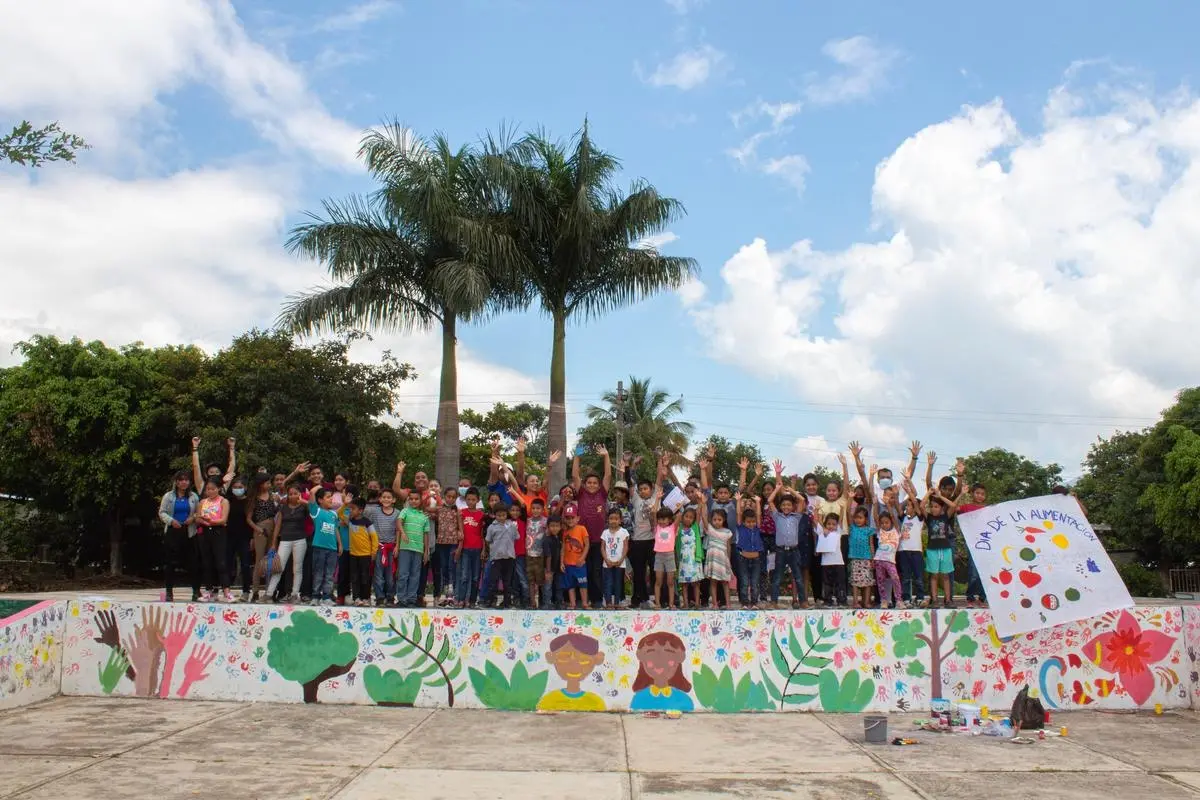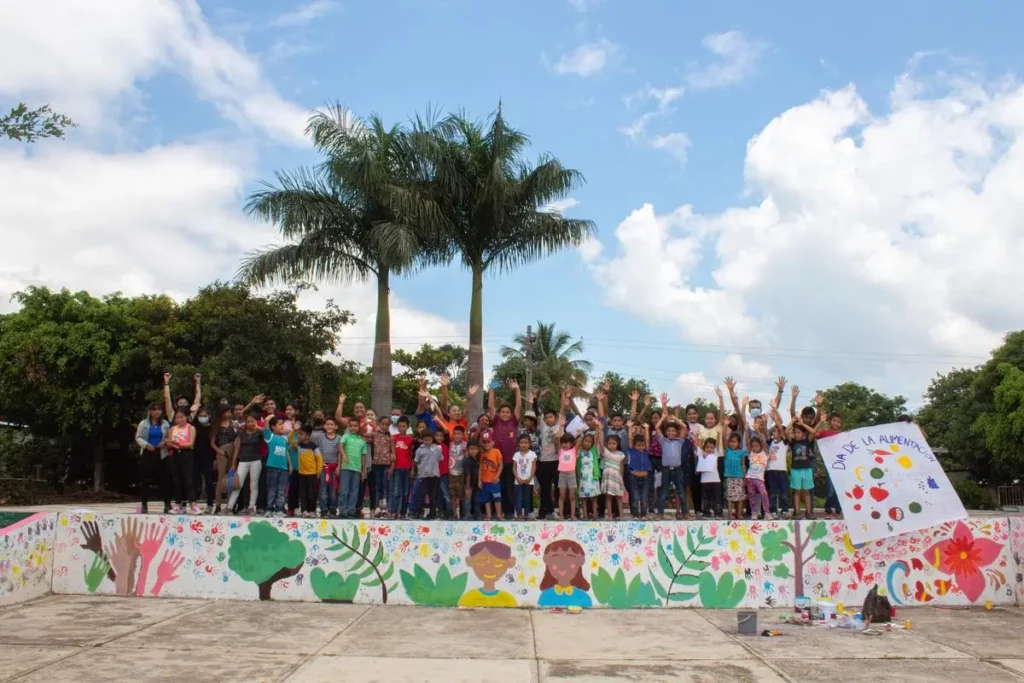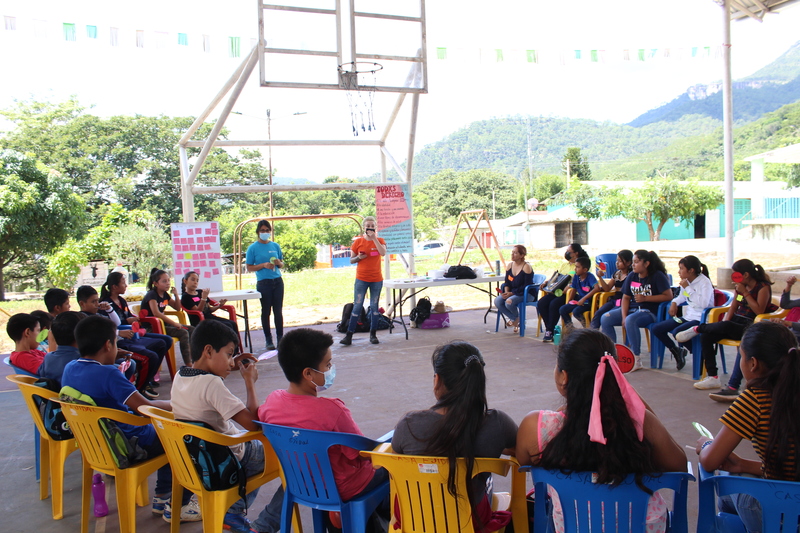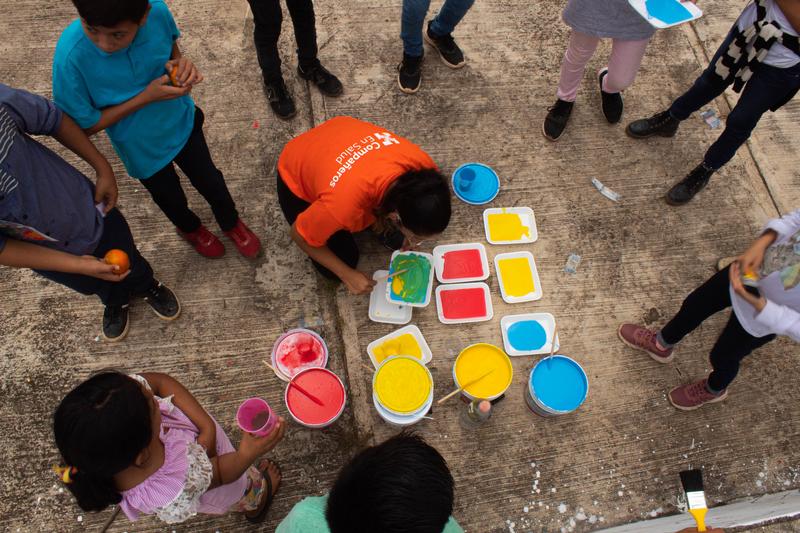Arts in Public Health: Teaching Youth About Reproductive Rights in Chiapas

PIH hosts workshop for teens in rural Mexico
Posted on December 21, 2022

In the rural community of Reforma, 100 teens gathered to take photos, make collages, and paint a mural. But the lesson was about more than art.
The activities were part of a three-day workshop on sexual and reproductive rights hosted by Partners In Health, known locally as Compañeros En Salud. The workshop, held in September, is one of many ways that Compañeros En Salud helps young people in Chiapas, Mexico learn about their health and rights.
Compañeros En Salud has worked in Mexico since 2011, where it has partnered with the Ministry of Health to strengthen the public health system and improve patients’ access to care. Compañeros En Salud supports a hospital in the city of Jaltenango and clinics in 10 rural communities, along with a workforce that includes doctors, nurses, midwives, and community health workers.
Sexual and reproductive health have been crucial to that work. In Chiapas, Mexico’s southernmost state, the population is young, with the median age of 24 years old, and rates of teen pregnancy and sexually transmitted infections are high, due to poverty and systemic barriers. Many patients seeking this care from Compañeros En Salud are teens and young adults.
After meeting with local leaders in Reforma, one of the communities where it works, Compañeros En Salud identified the need for sexual and reproductive health education. That inspired the team to organize the workshop.

Designed for students ages 12 to 15, the workshop used art to explore sexual and reproductive health, with topics ranging from consent to community. Lessons were divided into three units: “Our Life Plan,” “Our Community,” and “Our Body.”
In “Our Life Plan,” students envisioned their dreams and goals in life, while also learning about the importance of family planning and the consequences of an unplanned pregnancy. Those dreams ranged from owning a home and planting coffee to becoming a hairstylist in New York.
In “Our Community,” students tried their hand at photography and theater. They took photos that represented what community meant to them and acted out scenes that explored concepts like bodily autonomy and contraceptives.
In “Our Body,” the lesson focused on consent, helping students connect with their bodies and notice how and when they felt comfortable, uncomfortable, safe, or in danger. This unit included role-playing exercises to practice various situations in which they might feel pressured to say yes, but had the right to say no.
Students came away from the experience with a greater understanding of their rights and resources, as well as a deeper sense of community—captured by a vibrant mural in a local park that served as the workshop’s final project.

“This workshop was very useful for me,” says Uver, 13, a student from Reforma. “I can plan what I want in the future, thinking about the repercussions of each decision I make, and thus achieve my goals.”
Students weren’t the only ones taking notes.
“When we think of strategies to engage with rural communities, there must be a decolonization of knowledge,” says Marina Luria, content manager at Compañeros En Salud, who helped organize the workshop. “We don’t have all the answers and we have a lot to learn from the communities where we work. This workshop was a learning space for us, too.”
Originally published on pih.org
Two years later, PIH’s co-lead psychiatrist reflects on the challenges, progress, and work yet to be done in mental health care globally. Click to learn more about how PIH’s work in mental health is grounded in Dr. Paul Farmer’s concept of accompaniment and social support for the most vulnerable.



